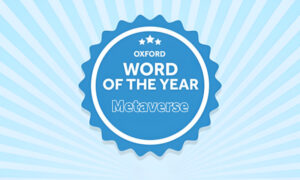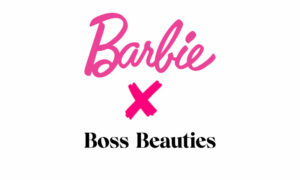Metaverse in the Running for Oxford Dictionary’s Word of the Year
Metaverse, along with three other words, have been voted by the public to be Oxford Dictionary’s “Word of The Year”.

This year, the Oxford English Dictionary has decided to offer the public the opportunity to each have a vote to decide which word on Oxford’s list will be crowned their ‘Word of the Year.’ The three options are metaverse, #IStandWith and the phrase ‘goblin mode’. These terms were chosen after careful deliberation by a team of lexicographers from Oxford University Press. Last year’s word of the year was ‘vax,’ which seems to be a bit of a cheat considering that it is actually an abbreviation, rather than a word in its own right.
Aside from the fact that this is the first time ever that the public has been allowed to vote for Oxford’s Word of the Year, other interesting factors regarding this year’s option is that two out of three of them are not even words (#IStandWith is a hashtag and ‘goblin mode’ is a phrase) and two out of three are also related to cyberspace.
What do these words mean?
#IStandWith is a hashtag used on social media to demonstrate a value or political stance that a person identifies with. It gained a lot of traction this year in response to Russia’s war against Ukraine, mainly among Ukraine’s supporters who are against Russia’s invasion.
Goblin Mode refers to someone who is generally, messy, unkempt, avoids showering and has an aversion to going outside. It seems similar to the Japanese ‘Not in Education, Employment, or Training (NEET)’ trend, although goblins differ in that they do often have jobs.
Metaverse refers to virtual reality worlds and also the 3D version of the internet. Many believe that this is the future of the internet in general and that it will replace the internet as we know it in the years to come.
Disambiguation of ‘Metaverse’
The phrase ‘the metaverse’ was originally coined in Neal Stephenson’s 1992 science-fiction novel Snow Crash and has been receiving a lot of attention over the last couple of years, especially this year. This is largely due to the negative articles surrounding Meta’s (formerly Facebook) venturing into the metaverse with its flagship project Horizon Worlds.
The confusion surrounding this is that most media platforms and social media platforms refer to Horizon Worlds as ‘Facebook’s metaverse,’ which it is. However, those who are not involved in the project itself, think that Facebook’s metaverse is actually called ‘Metaverse’ and that it is the only one.
But this is not the case. Furthermore, although Horizon Worlds may seem to be failing, there are many projects that are successful, such as blockchain-based Decentraland. This platform has become so popular that the Norwegian Tax Authority even decided to partner with Ernest and Young to create an official tax office on the platform, offering the full range of services as a brick-and-mortar tax office.
About the Oxford Dictionary’s ‘Word of the Year’ Competition
The Oxford ‘Word of the Year Award’ was launched in 2004. It is awarded by Oxford Dictionary to a word or expression that has attracted a great deal of attention over the last year. This is determined by a special language recognition program that sifts through over 150 million English words and phrases that are commonly used within web-based publications to determine which words appear most frequently. Once a finalist list has been made, the Oxford Languages team usually analyzes the words and then votes on the winner. Despite the fanfare involved, there is no guarantee that new words or phrases will be added to the official Oxford dictionary in the future. This year’s Word of the Year will be announced on December 5, 2022. A full list of previous winning words can be found on Oxford’s site.
